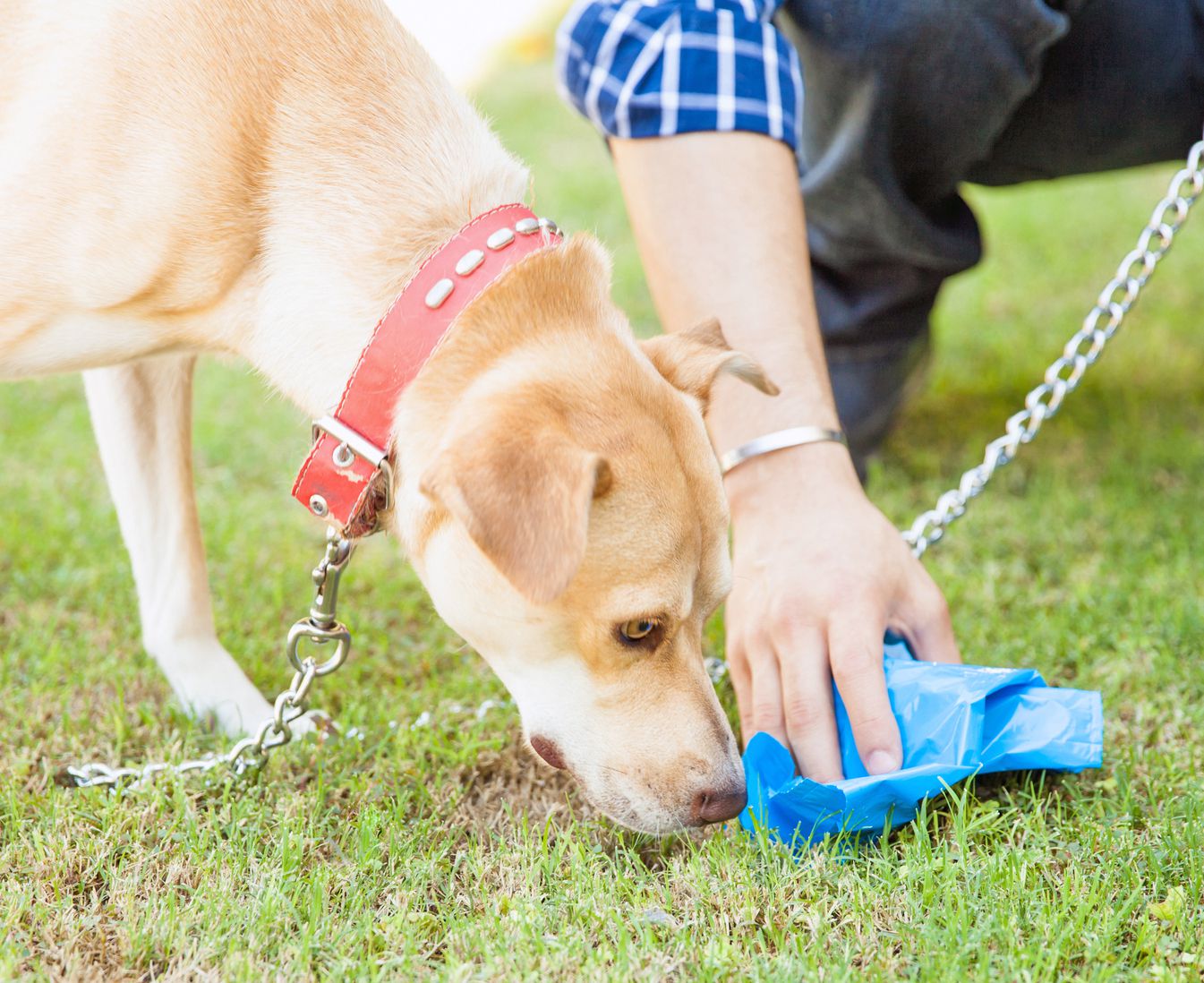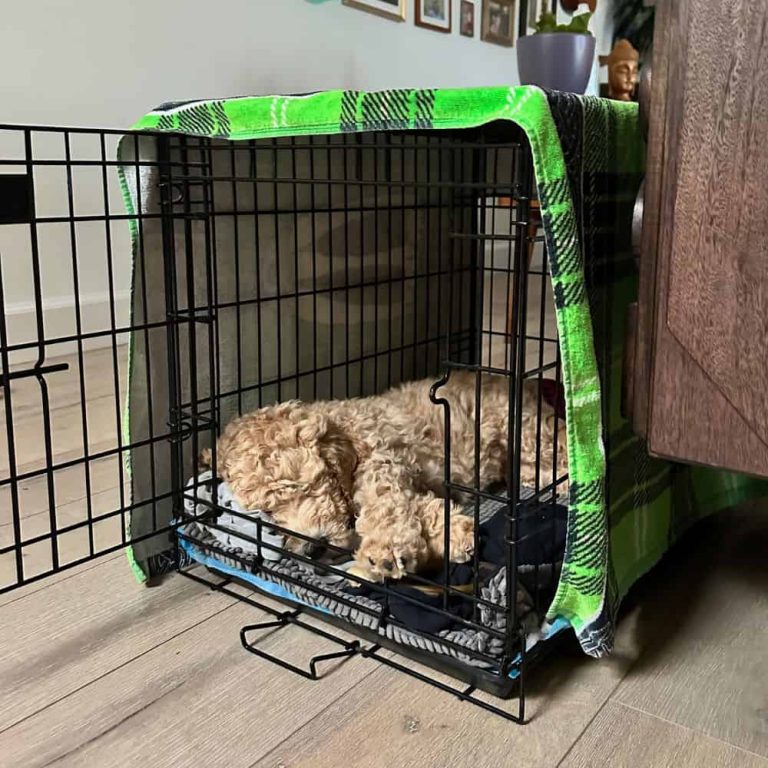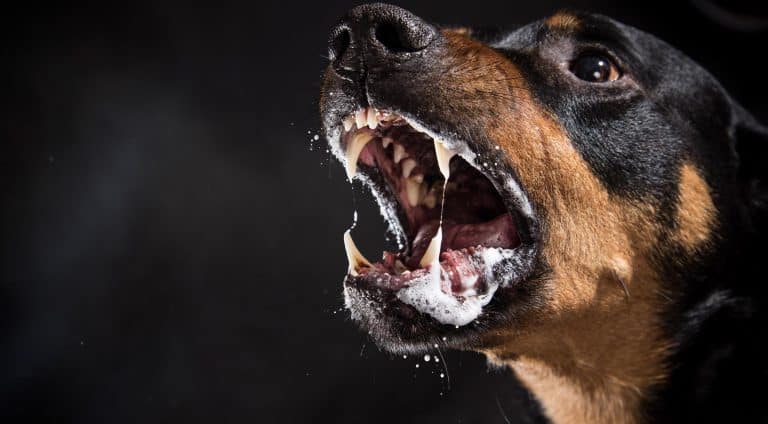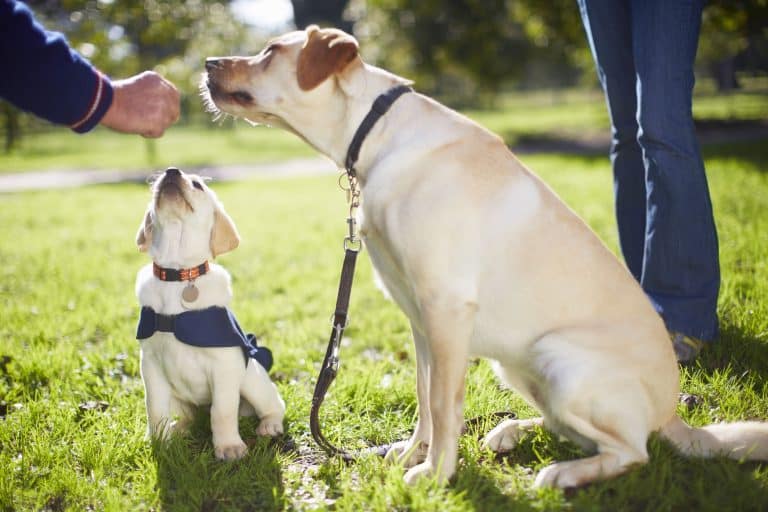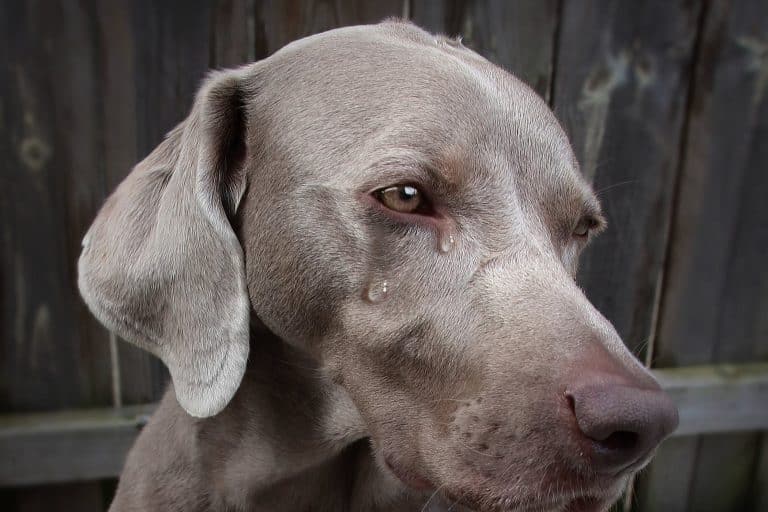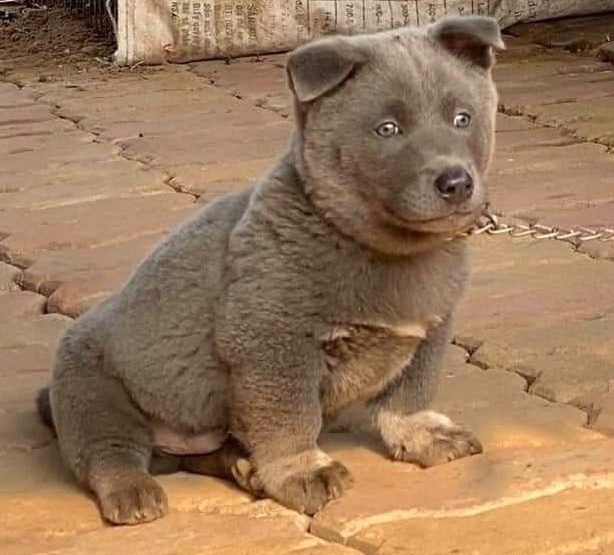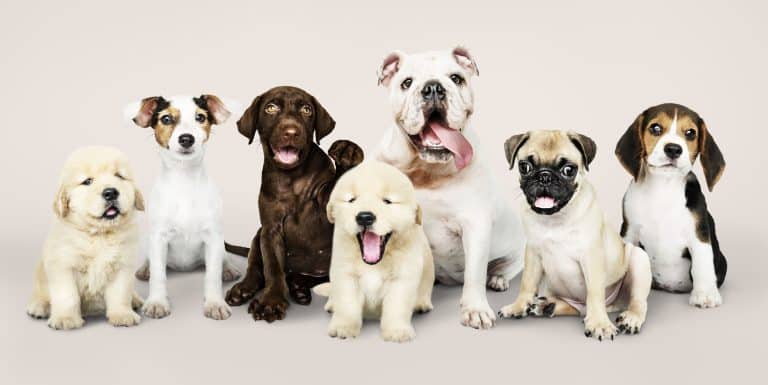Revealed: Why Do Dogs Eat Cat Poop & How to Avoid It
This could be hard to believe, but it is true, and it is not at all cute, unlike your pet dog. We are talking about dogs eating cat poop straight from the litter box. You might be feeling disgusted, and there must be a question coming into your mind why do dogs eat cat poop when there are so many good things to eat.
We all know that Dogs are known for their curious and sometimes peculiar behaviors, and one of such behaviors that often perplex dogs owner is their tendency to eat cat poop. This behavior, scientifically known as coprophagia, can be frustrating and concerning to pet owners. It would be best not to bother much because this behavior is natural.
This is because dogs are scavengers by nature, therefore, They eat all kinds of things, including poop. We have deep-dived into this matter and explored all the reasons behind why dogs eat cat poop and what can be done to discourage this behavior.
Science: Why Dogs Eat Cat Poop
You might be surprised, but there’s a good reason why dogs eat cat poop. Dogs have a natural habit of exploring and trying out things they shouldn’t, like rocks, trash, and even different types of poop, be it from dogs or cats.
This behavior is a sign of their scavenger instincts now when it comes to cat poop. The fact that it’s often right in the open makes it more tempting for your dog. It’s like having a delicious slice of cake sitting on your kitchen counter. It’s tough to resist, and for dogs, the smell and sight of cat poop can be pretty intriguing, making them want to give it a taste.
So even though it seems strange, there’s a simple explanation rooted in their scavenging nature.
Reasons Why Dogs Eat Cat Poop
First things first, dogs have a built-in scavenging instinct. Back in the day, when they were wild wolves, they’d eat all kinds of things, including feces, to get extra nutrients they might be missing from their regular diet.
This scavenging behavior helped them survive. Even though our pet dogs get nutritious food from us, this scavenging instinct still lingers, making them curious about all sorts of things.
Below are some reasons that justify why dogs eat cat poop:
1. Cat Poop is Easy to Find
One big reason dogs go for cat poop is that it’s often right there out in the open, especially if you see around, you’ll find a cat’s litter box, which is not closed, so it gets easy for dogs to munch it on.
It’s like leaving a delicious slice of cake for the one who is not supposed to eat it but ends up eating it because it is hard to resist. For dogs, the smell and sight of cat poop can be too tempting to pass up.
2. The Smell is Attractive
The smell of cat poop might be disgusting for you, but it’s surely a treat for your dog now cats have a high protein diet, and that gives their poop a strong smell.
Dogs have an amazing sense of smell, so they’re particularly sensitive to odor, which means the enticing aroma of cat poop can be irresistible, like the most pregnant treats they can find.
3. Attention-Seeking Behavior
Dogs are social animals that thrive on human interaction and attention. Coprophagia can serve as a means for dogs to draw their owner’s attention, whether positive or negative even if a dog is scolded or reprimanded for eating cat poop, it still reinforces the behavior because it grants the attention they seek.
For some dogs, any attention, even if it’s negative, is better than none, so there is a high chance that your dog is doing such kind of action just for your attention.
4. Coprophagia and Behavioral Issues
In some cases, dogs may consume catfishes due to underlying behavior problems first; anxiety, stress, boredom, or compulsive behaviors can drive them to indulge in coprophagia, a way to cope with their emotional distress.
Pet owners must monitor their dog’s overall behavior and consider consulting with a veterinarian or professional dog trainer if this habit becomes problematic.
Is Cat Poop Bad for Dogs?
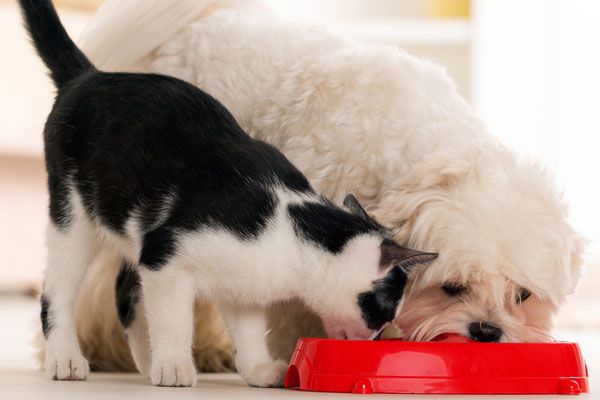
Cat food may not seem dangerous at first glance. Still, it contains harmful bacteria and parasites that can trouble your dog’s health, particularly if it becomes a regular habit. Some of these germs can even make their way to humans inadvertently. Below are some major reasons why you should be cautious.
- Cat faces can harbor harmful microorganisms that might cause infections in dogs. These organisms can include bacteria like Salmonella and parasites such as Toxoplasma gondii. These invaders can lead to gastrointestinal issues, making your dog unwell.
- Dogs that consume cat poop are at high risk of picking up a disease from the cat themselves. This includes parasites like roundworms and hookworms, which can lead to various health problems in dogs.
- Zoonotic diseases are those that can be transmitted from animals to humans. If your dog ingests cat feces and then licks your face or hands, you might unknowingly be exposed to these harmful pathogens, posing a risk to your health.
Eating cat poop can be dangerous for your dog. Additionally, there is a potential risk of several diseases to your dog and you. To protect your furry friend and yourself, it is essential to address this behavior, monitor your dog’s habits, and keep your environment clean.
Can Dogs Get Sick From Eating Cat Feces and Cat Litter?
Yes, dogs can get sick from eating cat feces and cat litter. Cat feces can harbor harmful bacteria and parasites, potentially causing infections and gastrointestinal problems in dogs. The ingestion of cat feces also exposes dogs to the risk of contracting feline-specific diseases like FeLV and FIV, which can be serious.
Furthermore, some types of cat litter, such as clumping clay or silica gel, can lead to gastrointestinal blockages if consumed, potentially requiring surgical intervention. Additionally, there is a zoonotic concern, where dogs can transmit diseases they pick up from catfishes to humans.
First, to protect your dog’s health, it’s crucial to monitor their behavior, maintain cleanliness, announce cat litter, and seek veterinary guidance if this habit persists.
Ways to Stop Your Dog from Eating Cat Poop Once and For All
You should stop your dog too much on cat poop as soon as possible. Now you are aware of why dogs eat cat poop. Thus, you should now focus on finding ways to stop your dog from eating cat poop. Below are some measures that you can take to prevent such filthy things from taking place.
1. Supervise and Distract
Supervising and distracting your dog is a fundamental method to restrict them from eating cat poop. By keeping a close watch on your dog in areas with cat litter or feces, you can catch any attempt at indulging in the act early. When you see them showing interest in cat poop, immediately redirect their attention with toys, treats, or engaging activities like a game of fetch.
This approach not only helps break the behavior but also fosters a strong bond between you and your dog through positive reinforcement. Remember consistency is key, and over time, your dog will learn that their attention-seeking behavior is better rewarded with your interaction and play rather than eating cat poop.
2. Clean the Litter Box
Ensuring a clean litter box is a crucial strategy to prevent dogs from eating cat poop. Regularly scooping and cleaning the cat litter box keeps it from becoming an attempted meal for your dog. Dogs are often attracted to cat feces due to their strong sand and the potential nutritional value they perceive.
By maintaining a clean litter box, you reduce the accessibility of canned feces to your dog, minimizing the opportunity for this unhygienic behavior. This simple yet effective method helps keep your dog healthier and your living environment cleaner while also discouraging them from indulging in cat poop.
3. Litter Box Placement
Strategic placement of the cat’s letterbox can play a significant role in discouraging dogs from eating cat poop. By positioning the litter box in an area that is limited or inaccessible to your dog, you can create a physical barrier that prevents their access. Many pet owners choose to place the litter box in a room or space that is gated or otherwise secured, ensuring that the cat can reach it while keeping it out of your dog’s reach.
Covered enclosures designed to fit the litter box can also be a helpful solution, allowing the cat to enter while keeping the dog out. This method addresses the problem at its source, making it harder for your dog to satisfy their curiosity or appetite for cat poop and helping to keep your home cleaner and more sanitary.
4. Train the “Leave It” Command
Training your dog to obey the “Leave It” command is a powerful tool to prevent them from eating cat poop. “Leave It” is a fundamental command that can be used when you catch your dog attempting to approach cat pope. Through consistent training, your dog learns to stop what they are doing and divert their attention from the tempting cat waste to something more acceptable, like a treat or a toy.
Positive reinforcement, such as praise and rewards, reinforces this behavior over time. Your dog associates the “Leave It” command with rewards, making it an effective means to discourage them from indulging in this unsavory habit. Training your dog to leave it not only keeps them safe but also strengthens your bond and helps with overall obedience.
5. Dietary Changes
Now you know why do dogs eat cat poop. You get that your dog finds cat poop more tasty. Thus dietary changes can be a practical method to discourage dogs from eating cat poop. Sometimes, dogs resort to this behavior due to dietary deficiencies or imbalances in their nutrition. Ensuring your dog receives a well-balanced and complete diet can address the underlying cause.
First off, consult with your veterinarian to select a dog food that meets your dog’s specific nutritional needs. The right diet can reduce the temptation to seek additional nutrients from cat poop and promote better overall health, reducing the likelihood of copper of Phagiadirectory changes, combined with other preventive strategies, can help keep your dog from indulging in this unhygienic habit
6. Positive Reinforcement
Positive reinforcement is a powerful tool in getting rid of dogs tendency to eat cat poop. When you catch your dog avoiding the behavior and showing interest in something else, such as a toy, treat, or a game to fetch, rewarding them with praise and treats reinforces their good behavior. Dogs are quick learners and thrive on positive attention.
By associating their actions with rewards, they are more likely to repeat those behaviors. In the context of cat poop, aversion positive reinforcement can help your dog understand that ignoring cat feces in favor of more satisfying results. Over time, your dog will develop a preference for positive behaviors and gradually reduce their interest in cat poop, making your living involvement cleaner and your dog happier and healthier.
7. Behavioral Training
When eating cat poop becomes a habit and stays on consistently, then seeking behavioral training is an effective approach to restrict dogs from eating cat poop. Professional dog Trainers or behaviorists can provide tailored strategies to address the underlying cause of coprophagia. By accessing your dog’s specific triggers and behavior patterns, they can design a training plan that includes techniques like desensitization, counterconditioning, and structured obedience training.
These methods help your dog break free from the habit of consuming cat feces by modifying their responses and strengthening their self-control. Behavioral training not only discourages the behavior but also addresses deeper issues, ultimately leading to a happier and more well-adjusted dog.
8. Anti-Coprophagia Products
Anti-Coprophagia products are specifically designed to help curb a dog’s tendency to eat cat poop. These products, typically available as additives or tablets that can be mixed with your dog’s food, work by altering the taste and odor of your dog’s feces. The goal is to make their poop less appealing to them after digestion, discouraging them from consuming it.
While not a guaranteed solution, these products can be an additional tool to deter your dog from coprophagia. It’s essential to consult your veterinarian before using such products to ensure they are safe and suitable for your dog’s needs.
9. Regular Vet Check-ups
Regular vet Check-ups are a crucial method to ensure your dog doesn’t fall into the habit of eating cat poop, as it can help identify and address any underlying health issues. Coprophagia can sometimes signify medical problems, such as nutritional deficiencies, gastrointestinal disorders, or parasitic infestations.
A veterinarian can conduct a thorough examination, run necessary tests, and provide guidance on dietary changes or treatments if needed. By maintaining your dog’s overall health, you reduce the likelihood of them seeking out cat feces as a substitute for essential nutrients or as a response to discomfort. Regular vet check-ups contribute to a healthier, happier dog and can play a key role in preventing coprophagia.
What Happens if We Let Our Dog Eat Cat Poop?
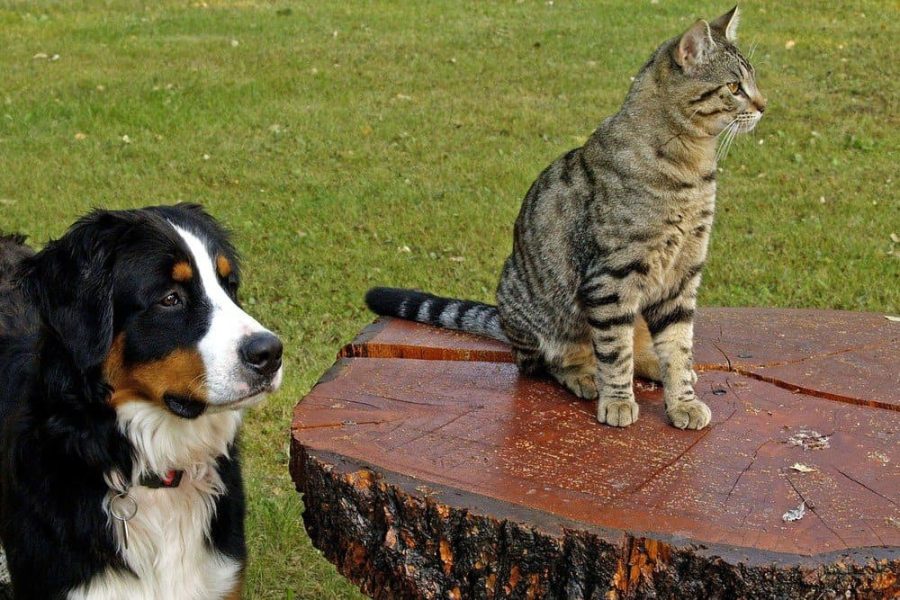
Allowing your dog to eat cat poop can have several negative consequences. Cat feces can contain harmful bacteria and parasites that may lead to gastrointestinal infections and other health issues in dogs.
Additionally, if the cat has any undiagnosed diseases or parasites, your dog could become infected. Furthermore, there’s the risk of zoonotic transmission, where your dog might transmit diseases or parasites to humans through contact. Allowing this behavior can also be challenging to break, potentially leading to long-term coprophagia, a habit that is both unpleasant and unhygienic.
In conclusion, it’s best to prevent your dog from eating cat poop to protect their health and maintain a clean and safe living environment. Thus, it is necessary to prevent your dog from eating cat poop.
How Do You Clean Your Dog’s Mouth After Eating Poop?
Cleaning your dog’s mouth after they’ve eaten poop is essential for several reasons. First, it helps prevent the spread of harmful bacteria and parasites that might be present in the feces, safeguarding both your dog’s health and yours.
Second, it can help eliminate the offensive odor and prevent your dog from ingesting any lingering fecal matter. Lastly, it discourages your dog from developing a habit of eating feces, which can lead to further health issues.
Steps to Clean Your Dog’s Mouth After Eating Poop
- You’ll need a few essential items, including clean water, mild dog-friendly toothpaste, and a soft-bristle or finger toothbrush. Make sure your supplies are within easy reach.
- Approach your dog calmly and gently. Avoid showing frustration or anger, as this might stress your pet.
- Encourage your dog to sit still or lie down. It’s crucial to make them as comfortable as possible for this process.
- Dip the toothbrush or finger toothbrush in clean water and gently brush your dog’s teeth. Start with the outer surfaces and gradually work your way to the inner surfaces.
- Apply a small amount of dog-friendly toothpaste to the toothbrush or finger toothbrush. Ensure the toothpaste is safe for dogs and free from harmful ingredients.
- Gentle brush your dog’s teeth, including the gums and tongue. Pay extra attention to the areas where they may have fecal residue.
- Rinse your dog’s mouth with clean water. Make sure to remove all toothpaste and any remaining fecal matter.
- After the process is complete, praise your dog and offer a small treat as a reward. Positive reinforcement can help them associate the experience with something positive.
- Depending on the severity of the issue and your dog’s tolerance, you may need to repeat this process over a few days to ensure the mouth is thoroughly clean.
- If you have concerns about your dog’s health or if they exhibit any signs of illness, consult your veterinarian for guidance.
Conclusion
Now you are aware of the fact that why do dogs eat cat poop. Thus, an act of dogs eating cat poop, while strange and undesirable, can often be explained by a combination of instinctual behaviors, the appeal of scents, a need for attention, and various environmental factors. Understanding why dogs engage in this behavior can help pet owners take appropriate measures to prevent and manage it effectively.
By addressing the root causes and providing proper care, you can help ensure a healthier and more enjoyable life for your furry companions. By taking preventive measures and seeking veterinary guidance, you can protect your beloved dog from these risks and ensure their health and happiness.
As a responsible pet owner, your vigilance and care play a crucial role in your dog’s overall well-being.
Frequently Asked Questions
What Should I Do if My Dog Has Eaten Cat Poop?
If your dog has ingested cat poop, monitor them for any signs of illness and consult your veterinarian if you have concerns. They can guide on addressing potential health risks.
Are There Any Long-Term Effects of Allowing My Dog to Eat Cat Poop?
Allowing your dog to eat cat poop can reinforce the behavior, making it more challenging to break. It can also result in health issues if they contract infections or parasites. Preventing this habit is crucial for their well-being.
Is It Possible for My Dog to Transmit Diseases to Me if They Eat Cat Poop?
Yes, there’s a risk of zoonotic transmission, where dogs can transmit diseases or parasites to humans through close contact after eating cat poop. Some products, like anti-coprophagia additives, can make a dog’s feces less appealing to them. Consult with your veterinarian before using such products.

